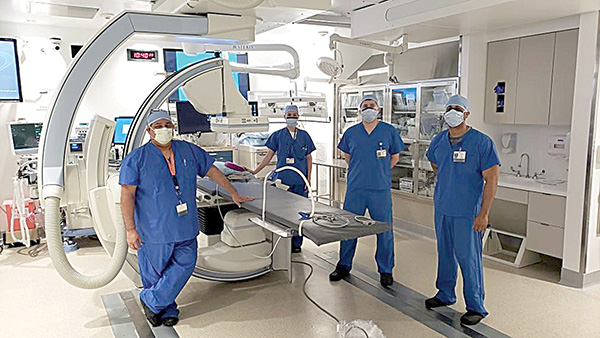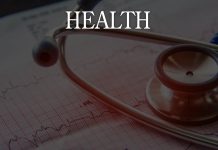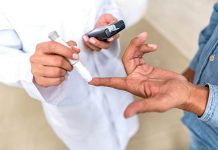
By Judy O’Gorman Alvarez
Nothing disrupts life like a pandemic. With the COVID-19 stay-at-home orders and more than 11,000 lives lost to the virus in New Jersey alone, life has been turned upside down. Priorities have shifted. Over fear of contracting the coronavirus, maybe you thought that routine checkup with your primary care physician or annual mammography or skin cancer screening could wait a little longer.
While necessary procedures and life-saving treatments have continued, including at Memorial Sloan Kettering Cancer Center (MSK) in Middletown, many patients – some considered in vulnerable health – and physicians were concerned that the virus was so prevalent and highly contagious, it was safer for some patients to stay home rather than risk a trip to a medical facility for a check-up.
“We never stopped caring for our patients,” said Diane Reidy, M.D., medical oncologist at MSK, who said doctors there have been working at almost the same capacity throughout the pandemic as they continued treating patients with life-saving chemotherapies and other treatments.
But now that New Jersey has flattened the curve, health care providers agree: it’s time to address those routine health checks.
“Thank heaven the numbers have gone down so dramatically,” said Reidy. She said they now urge their patients to reschedule those postponed screenings and checkups.
For recovering cancer patients, screenings, scans, bloodwork and follow-up appointments are paramount.
“We don’t want to see a potential for stage migration. If we wait too long, a stage 1 could change to a 3 or a 4.”
Reidy said they are now “much more comfortable” about providing regular exams and scans. “When it comes to routine tests, we have the right measures and screenings in place. We have the proper PPEs.”
MSK, like most health care facilities, made changes in protocol, such as limiting the number of people in its facilities, spacing appointment times and creating a limited visitor policy.
In addition, MSK patients are queried about any cold or flu-like symptoms, new curbside check-in procedures can be completed from a patient’s car and COVID-19 testing is operating at full capacity to test patients and staff as frequently as necessary.
“We recognize the devastation,” she said, “the people lost and the economic toll.”
Televisits were one of the silver linings, according to Reidy. “It kept our patients home,” she said, while still allowing doctors to address any medical issues.
Through televisits, physicians can do more than just hear a patient’s concerns, but also visually assess conditions, from pallor to swollen ankles.
“We are continuing to do our virtual medicine – not for a procedure – but we can share scans and we can allow for anyone in the family to ask questions,” said Reidy. “We get to meet the children and grandchildren our patients have been telling us about. We get a glimpse into the life of a patient in a different way.”
“We’re connecting in a way that’s not the warm hug we try to give each other but in a way to allow everyone to ask questions,” she said.
Health care providers in all specialties are encouraging their patients and the community to put their health screenings on the front burner.
Children, in particular, need their health, growth and development monitored.
“We’re pretty worried that children aren’t getting the well care that they got before,” said Meg Fisher, M.D., chair of the Department of Pediatrics at Monmouth Medical Center and medical director at Unterberg Children’s Hospital.
“The immunization rates in New Jersey have dropped by about 60 percent. So, we’re pretty nervous that that’s going to be problematic.”
Fisher said she wants to stress to people that it’s safe to go to a hospital or a doctor’s office. “Originally, we were saying ‘Stay home, stay home; you don’t need to come in,’ and unfortunately people listened to us and now they’ve taken that a little bit too far,” she said. “And what we’re seeing is children with a ruptured appendix because they were kept at home too long. So, we really want to get the message out to parents that your doctor’s office is safe and that you need to be in touch with them, and that not only do you need care when you’re sick, you also need your well care.”
David Herman, D.M.D., Lincroft, has made changes to his dental practice including requiring masks, adding hand sanitizers and air purifiers, taking temperatures, staggering appointments and eliminating shared magazines.
“With dentists, we have been using the proper PPEs since the HIV/AIDS epidemic in the ’80s,” he said. “Now we’re doing that on steroids.”
Herman said the pandemic has taken its toll on his patients’ teeth. “I’m seeing neglected teeth,” he said. “Some that didn’t need a root canal, need one now. Some teeth that could’ve been saved can’t be saved now.
“During the pandemic people were depressed, understandably,” he said. “Maybe they’re not eating right, not exercising, not motivated to floss.
“I believe in mind, body and soul,” Herman said. “If one of those three of are being neglected, it affects everything.”
Scientists, virologists and physicians continue to warn that even as the number of cases – and fatalities – decrease, COVID-19 is not gone; concerns are that the number of cases could rise again in the fall or as flu season starts.
“We don’t know what’s to come,” said Reidy. But “we want to get the message out: your health matters.”
“Enjoy the summer in this new normal,” she said. “Stay safe.”
The article originally appeared in the June 4 – 10, 2020 print edition of The Two River Times.














